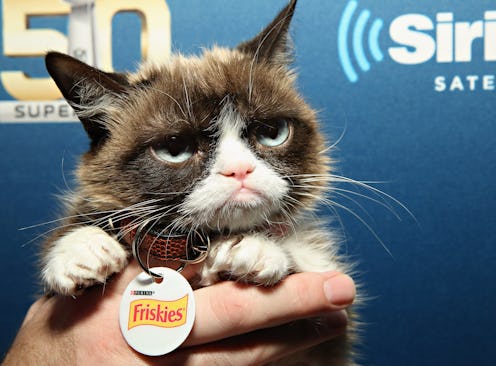If you’ve ever wondered why your cat ignores you, treats you with disdain, or flat out doesn’t seem to like or need you very much, good news! We finally know why: According to new research, how friendly a cat is towards humans depends on its genome. It really isn’t you — it’s them.
The study, which was published in the Proceedings of the National Academy of Sciences , sought to find the answers to our questions about domesticated cat behavior by comparing their genomes with those of a selection of other mammals. Researchers first sequenced the genome of Cinnamon, a female Abyssinian cat, then compared it to eight other cat species — six domestic and two wild — and four mammals. The short version of what they found is this: Domestic cats don’t have a huge number of changed genetic regions, but the ones they do have are key.
Said lead author Wesley Warren of the Washington University School of Medicine’s Genome Institute, “Cats are clearly still very independent in their behaviors, and, importantly, still interbreed with wild populations.” The changes that they did find are linked to reward responses, memory, and fear conditioning, suggesting that as cats become less afraid of humans and more responsive to food rewards, they become tame. This probably explains why my cats started bringing us their toys as presents so frequently: They realized I gave them treats in return.
Here’s the slightly longer explanation: Wildcats have slightly larger brains than domesticated cats; other than that, though, they’re physically almost identical. Senior author Stephen O’Brien of the Theodosius Dobzhansky Center for Genome Bioinformatics, however, told Wired that the biggest difference between wild and domesticated cats are their personalities, which is based in their genomes. The spread of agriculture 10,000 years ago, said O’Brien, kicked off the domestication of cats; when humans began creating more food waste, it attracted wildcats and other scavengers. Some of those wildcats were genetically inclined to be less fearful towards humans, which eventually helped with the evolution of house cats. According to the study, there are three genetic links that might explain the personality changes: House cats show more mutations on genes that quell aggressive behavior, create memories, and allow them to learn from fear or rewards. Remember that whole thing where wildcats and domestic cats still breed together? The more wildcats with those genetic mutations bred together, the friendlier the cats became towards humans. After enough generations have bred, voila: Cats that are genetically inclined to be domesticated.
As for domestic cats who aren’t terribly friendly? It probably means that those three key mutations don’t occur in such a pronounced fashion in them. So, if Grumpy Cat really were as grumpy in reality as she looks, it would just be because she’s following her biological imperative. It’s worth noting, though, that Grumpy Cat isn’t actually grumpy; that’s just the way her face looks. She even said so herself back in 2012, shortly after her meteoric rise to fame on Reddit:
But hey, at least she’s been able to capitalize on her persona, right? Grumpy Cat’s Worst Christmas Ever is only two and a half weeks away from its November 29 debut, so good for you, Grumpy. You show those holidays who’s boss.
